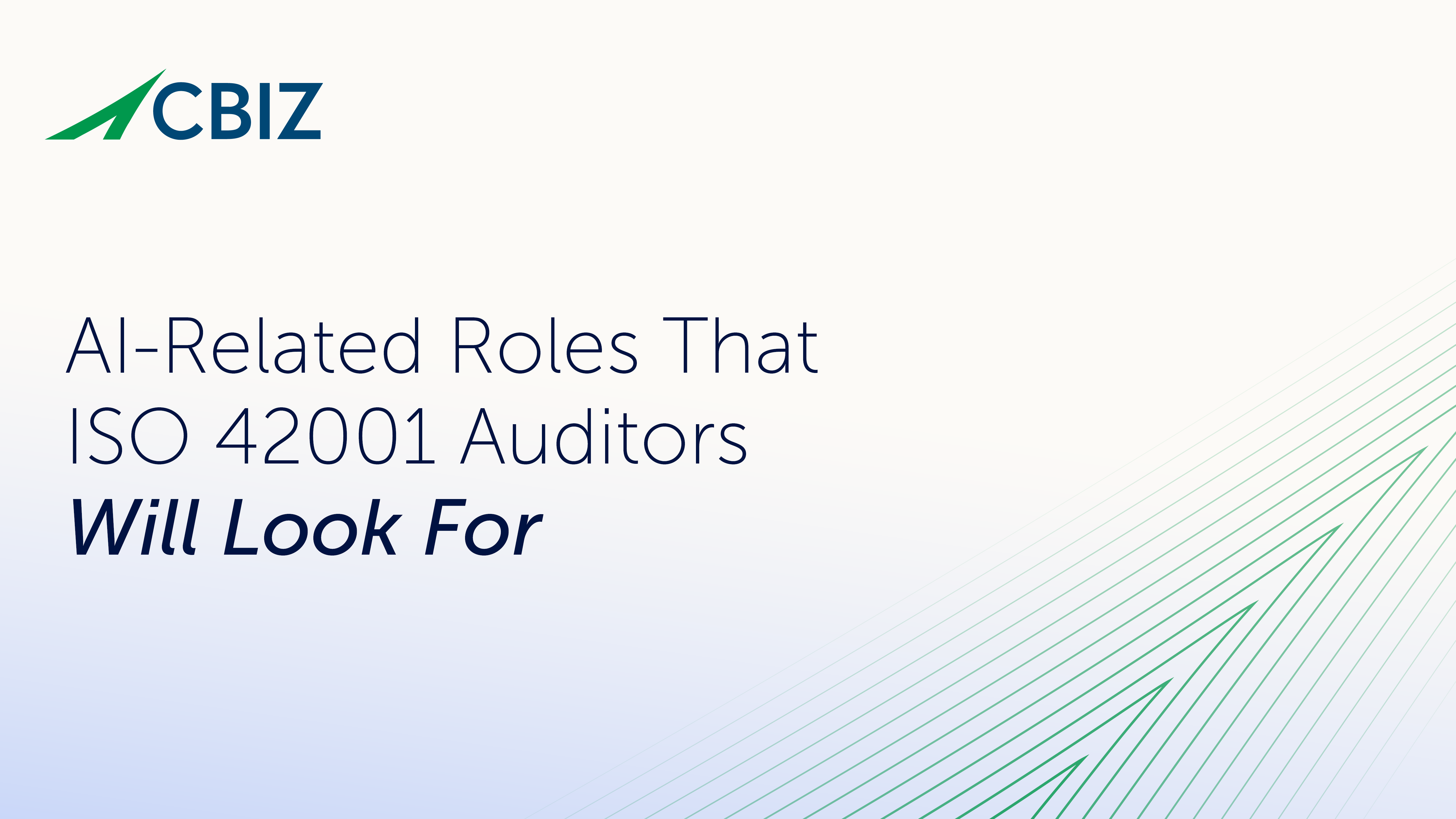AI-Related Roles That ISO 42001 Auditors Will Look For
ISO/IEC 42001:2023 (ISO 42001) is the first international AI-specific management system standard, providing a framework for organizations to manage AI risks, governance, and compliance. When assessing an organization for ISO 42001 certification, auditors will evaluate various AI-related roles to ensure accountability, governance, and risk management.
These roles will be evaluated for their responsibilities and effectiveness in AI risk management, ethical AI principles, compliance documentation, and overall AI governance structure. Note that ISO 42001 also enumerates five AI stakeholder roles that businesses seeking certification need to relate to their AI activities for purposes of scoping their AI management system (AIMS).
To help organizations prepare for an ISO 42001 assessment, this article quickly shares many of the key AI roles in the assessment process. AI-related roles to identify or consider developing within your organization include:
AI Strategic Roles
- AI Risk Manager: Identifies, assesses, and mitigates AI-related risks.
- AI Internal Auditors: Conduct internal audits for AI compliance with ISO 42001 requirements.
- AI Ethics and Bias Auditors: Evaluate AI systems for bias, fairness, and ethical considerations.
- Chief AI Officer (CAIO) or AI Strategy Lead: Drives AI initiatives while ensuring alignment with ISO 42001 governance.
- Board of Directors or AI Ethics Committee: Provides oversight on AI governance, ethical concerns, and strategic direction.
AI Technical Roles
- AI Architect: Designs AI systems with compliance, risk, and security considerations.
- AI/ML Engineers and Data Scientists: Develop AI models while ensuring compliance with governance frameworks.
- AI Model Validators: Independently assess model fairness, bias, accuracy, and explainability.
- AI Security and Privacy Specialists: Implement security controls, privacy-enhancing technologies, and compliance with regulations like GDPR.
AI Compliance Roles
- AI Risk Officer or AI Compliance Officer: Ensures adherence to ISO 42001 and other relevant regulations (e.g., GDPR, EU AI Act).
- Chief AI Ethics Officer: Oversees ethical AI use, bias mitigation, and alignment with organizational values.
- AI Policy and Compliance Team: Develops, enforces, and reviews AI-related policies, ensuring transparency and accountability.
- Chief Data Officer (CDO): Oversees data strategy, ensuring AI models use high-quality, ethical, and compliant data.
- AI Data Stewards: Manage AI-related data governance, privacy, and security.
AI Operational Roles
- AI Ops/MLOps Engineers: Ensure responsible deployment, monitoring, and retraining of AI models.
- AI Incident Response Team: Manages AI-related failures, biases, or security breaches.
- AI Performance and Explainability Analysts: Monitor AI performance and ensure model decisions are interpretable.
What’s next?
CBIZ Pivot Point Security offers AI governance and advisory services to help organizations establish clear and defined policies and procedures for AI use. We work closely with client teams to evaluate the effectiveness of controls, verify alignment with evolving regulations, and implement management systems and strategies that enable you to maximize AI benefits while proactively mitigating risks.
For businesses seeking to implement an ISO 42001 compliant AIMS, CBIZ Pivot Point Security will support your team with the implementation expertise needed to establish and execute a comprehensive roadmap to successfully achieve ISO 42001 certification.
Contact us if you would like a specific checklist or template for assessment, or to start a conversation on best-practice AI governance.























